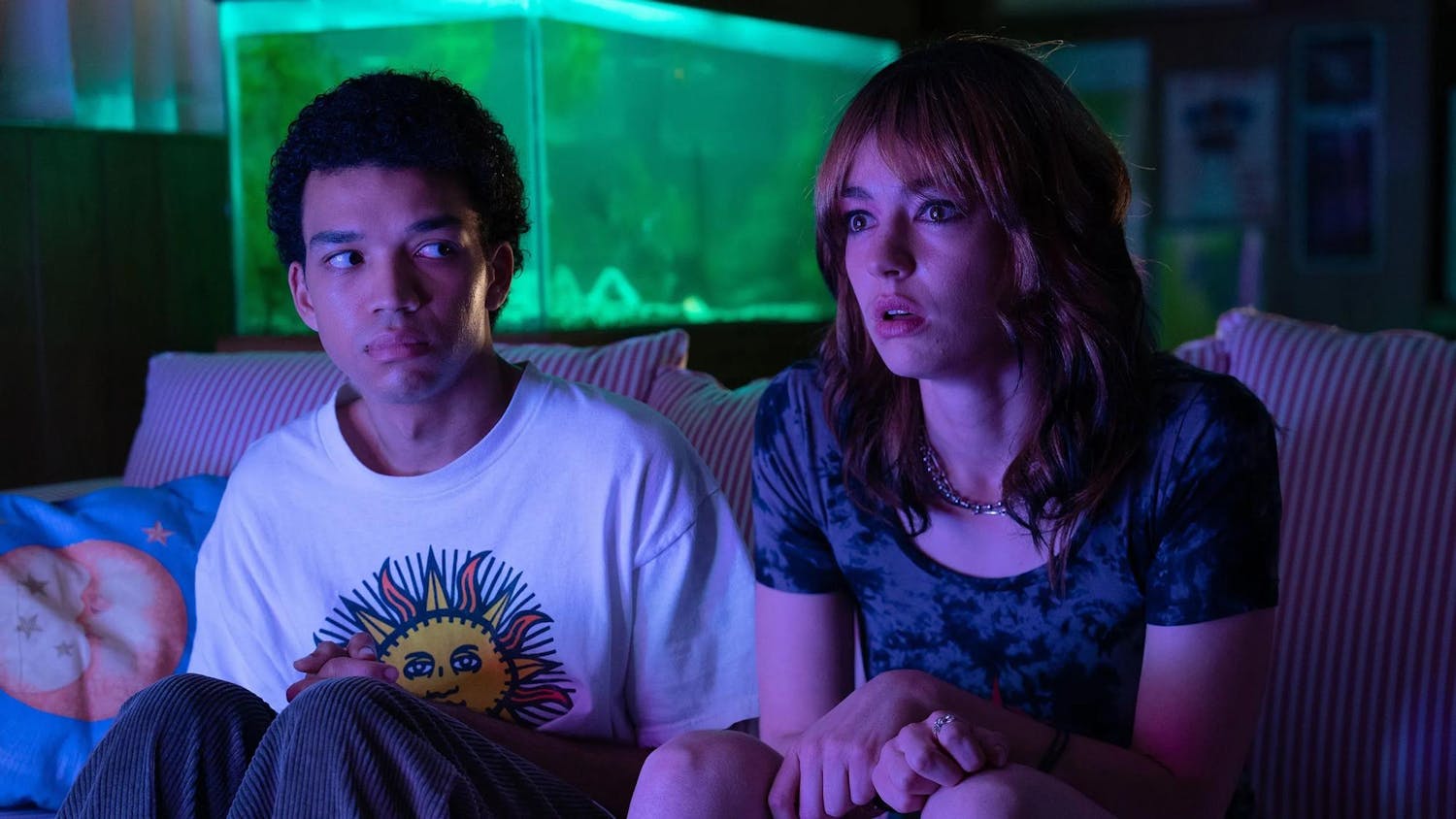It is 6 a.m., and a young woman is just rising from bed. Her name is Sidonie Laborde, and she is the queen’s reader in 18th-century Versailles.
And so begins “Les adieux a la reine” — “Farewell, My Queen” in English. The film, directed by Benoit Jacquot, tracks the life of Marie Antoinette in the three days following the fall of the Bastille and was screened at last night’s opening of the Providence French Film Festival.
The film closes in on Marie Antoinette as an individual, rather than a historical player in the French Revolution.
Diane Kruger’s Marie Antoinette is a flighty and whimsical queen, given to lapses in memory and violent emotions. The suggestion of a romantic relationship between Marie Antoinette and one of her closest friends, the duchess Gabrielle de Polignac, is a subtext that runs throughout the film.
During her reign, those who disliked the queen spread gossip about her possible homosexuality, though there is no historical proof of her sexual orientation. “It belongs now to her legend,” said Pierre Saint-Amand, professor of French studies and comparative literature.
The film successfully navigates this uncertainty. It contains implications throughout that de Polignac has been unfaithful to her husband and that the queen has showered favors upon the duchess’ family. It is not until the film’s end that the relationship becomes more explicit, though it is never consummated on screen.
The film is seen through the eyes of Sidonie, one of the queen’s ladies. The girl is a fictive character, which gives the director liberty to explore the queen’s nature in a more intimate way than historical records would, Saint-Amand said.
“It’s all captured at the level of fantasy,” he said.
Sidonie has a profound, but unfulfilled, affection for her queen, which manifests as a constant parallel between her character and that of de Polignac. At times, this equivalence seems heavy-handed — the duchess is described as a “country bumpkin,” while Sidonie trips over her skirts and seems ill at ease at Petit Trianon, the queen’s estate at Versailles. In the end, the parallel becomes transformative as Sidonie takes the place of de Polignac to allow the latter to escape the mobs of the French Revolution.
Un Evenement Populaire
“Les adieux a la reine” was the first screening offered by this year’s Providence French Film Festival, an annual event that began 17 years ago. The festival aims to expose students and community members to European cinema, which often cannot be found elsewhere, said Shoggy Waryn, senior lecturer of French studies and the festival’s artistic director.
Of the films that will screen at the festival this year, 50 percent are premiers or near-premiers in the United States, Waryn said. Though over 300 French language films are produced each year, only five to 10 of them reached American audiences, he added.
The event shows works in the French language from across the world — among the selections are films from Canada, Belgium, Switzerland, francophone Africa and France itself, Waryn said.
Among audience favorites are directors Christophe Honore, Michel Ocelot and Alain Resnais, whose films have made multiple appearances at the festival, said Richard Manning, film archivist for the Department of Modern Culture and Media.
Though the festival was originally targeted at students to be used as class material, its audience has grown to encompass a viewership across the city and state.
“We developed a sort of cult following in the Rhode Island and Providence population,” Waryn said.
Some festival attendees will stay for three to four films in a row on the weekends, said Stephen Crocker ’05.5, who has volunteered for the festival since 2004.
With Cable Car Cinema as its venue, the festival encourages students to venture off College Hill and become part of the wider community, Kamil said. It also permits the festival to reach a larger audience.
The festival brings some levity to Providence during the long winter months, which are “usually kind of a gloomy time,” Crocker said.
This year’s festival includes many light-hearted treatments of serious material, Waryn said. French cinema has a tendency toward darkness, but many of the films currently on show have a happier tone than in past years.
“Even serious topics are dealt with with some amount of humor,” he added.
Bienvenue a Providence
The festival began as a collaboration between the French studies and MCM departments, Manning said.
During its first two years, the festival only showed two to four films per weekend during April and May. But it tended to lose attendance toward the end of the semester as students became occupied with school obligations, so the switch to a more continuous format followed, Manning said. The festival now runs for approximately two weeks with multiple screenings each day.
The screenings have evolved from analog to digital over the festival’s history Though many movies are still shot and screened on 35mm film, the Providence French Film Festival now screens much of the material on DVD or Blu-ray, Manning said.
“I think there’s something special about seeing a film on film,” Crocker said. But he added that the simple “collective experience” of seeing a film in a theatrical setting is exceptional in itself.
In the past, the festival has brought in directors, writers and other industry professionals, though there will be no guests this year, Waryn said.
“It’s interesting, but it’s not necessary,” he said. “Bringing films is the core of the festival.”
ADVERTISEMENT




